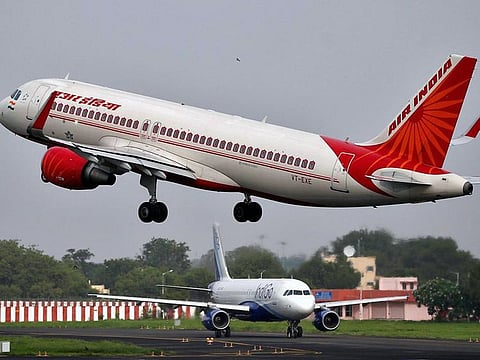It is already a revitalised Air India that is taking to the UAE-India routes
UAE's Indian expats ready to extend their support as airline seeks a comeback to profits

Dubai: It’s all in the name.
Just weeks after Air India was officially taken over by the conglomerate Tata Sons, travelers seem to have already given their vote of confidence that, this time, things will indeed change for the better at the airline.
“Traditionally, flying with the Middle East carriers has been seen as a status symbol, and that was damaging for Indian operators,” said Mark Martin, CEO of Martin Consulting. “Now you have got an Air India that wants to be at par with UAE airlines in terms of product quality. There are some good times ahead for Indian expats”
Not a ‘sarkari’ airline anymore
In these few weeks, the new Tata management has shown that it will not run the airline like a government enterprise. This could be observed from the quite unexpected appointment of ex-Turkish Airlines chairman Ilker Ayci as Air India’s CEO.
“A month before the takeover, they had an entire team of executives who went and looked into every vertical at Air India so that change can happen starting Day One,” said an industry source. “There’s a lot being done behind the scenes – it’s not going to be a sarkari airline at all.”
Willing to renew their confidence in Air India
UAE-based Indian expats are a lot more confident about flying with Air India now. “I feel like the experience will be better and they will have better amenities too,” said Nida Saleem, an Abu Dhabi-based accountant. “I definitely feel like their services will now be more consistent.” But some wants to take a decision once Air India under the Tatas shows that it has changed. According to Avnika Puri, who works for a Dubai-based construction firm, "I'd still take more time and hear more reviews from others before I decide to travel with them,” said Puri.
Larger networks?
Air India, along with its low-cost subsidiary Air India Express, has sizeable UAE-India operations. Although the addition of any new routes may not be possible due to India’s ‘bubble’ arrangement policy, it is always on the cards.
“The UAE has an unlimited open sky policy, so UAE will allow flights to come in as long as India does the same,” said Martin.
An open sky air service agreement allows airlines from the two countries to have an unlimited number of flights as well as seats to each other’s jurisdictions. Since the beginning of the pandemic, India has been operating flights under ‘air bubble’ agreements, giving the country’s airlines an advantage.
Air India Express, which mostly focuses on Gulf region routes, connects around 10 Indian destinations to Dubai, including Delhi, Mumbai, Amritsar, Kochi, Trivandrum, Jaipur and Vijaywada. Air India operates flights between Dubai and around 13 destinations, including Goa, Chennai and Indore.
Vistara, the joint venture between Tata and Singapore Airlines, operates flights from Delhi to Dubai. It also has flights from Sharjah to Delhi and Mumbai.
“Air India will most immediately look to reclaim its territory in sectors such as the Gulf region, Africa and South East Asia,” said Martin.
Indian expats in the UAE will surely do their part in helping out the airline.
Sign up for the Daily Briefing
Get the latest news and updates straight to your inbox



